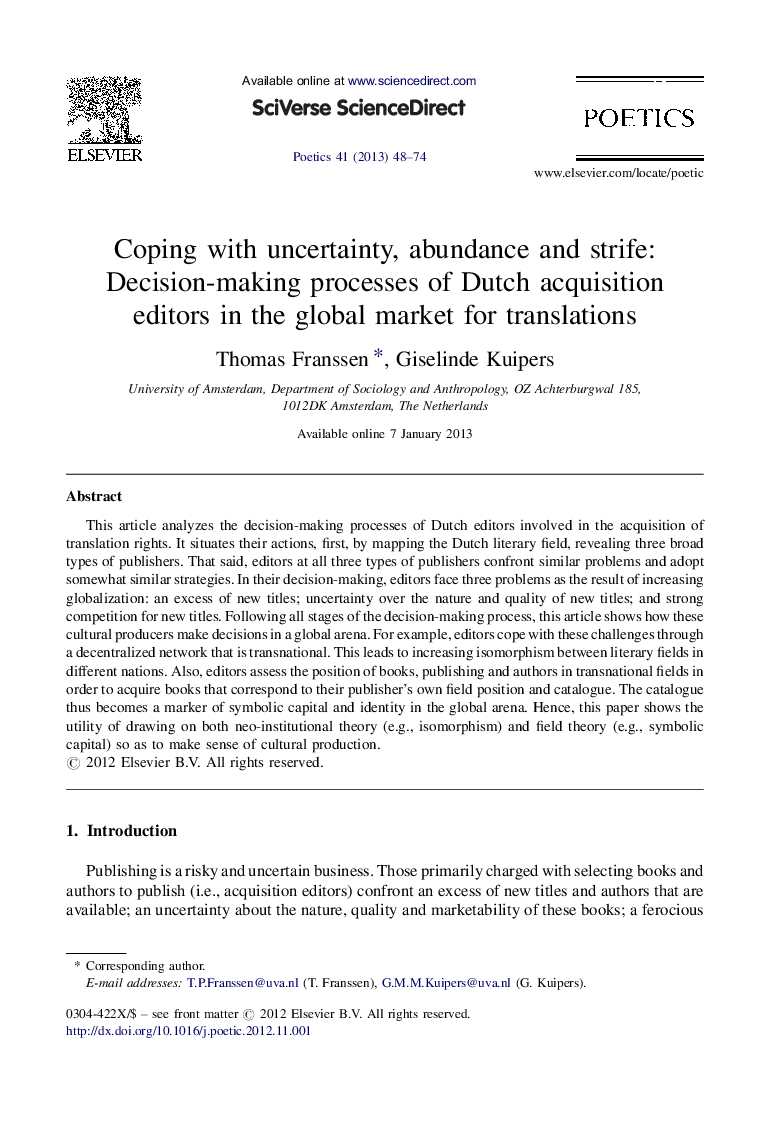| Article ID | Journal | Published Year | Pages | File Type |
|---|---|---|---|---|
| 1128419 | Poetics | 2013 | 27 Pages |
This article analyzes the decision-making processes of Dutch editors involved in the acquisition of translation rights. It situates their actions, first, by mapping the Dutch literary field, revealing three broad types of publishers. That said, editors at all three types of publishers confront similar problems and adopt somewhat similar strategies. In their decision-making, editors face three problems as the result of increasing globalization: an excess of new titles; uncertainty over the nature and quality of new titles; and strong competition for new titles. Following all stages of the decision-making process, this article shows how these cultural producers make decisions in a global arena. For example, editors cope with these challenges through a decentralized network that is transnational. This leads to increasing isomorphism between literary fields in different nations. Also, editors assess the position of books, publishing and authors in transnational fields in order to acquire books that correspond to their publisher's own field position and catalogue. The catalogue thus becomes a marker of symbolic capital and identity in the global arena. Hence, this paper shows the utility of drawing on both neo-institutional theory (e.g., isomorphism) and field theory (e.g., symbolic capital) so as to make sense of cultural production.
► Step-by-step analysis of the decision-making process of acquisition editors. ► Editors confront challenges of uncertainty, competition, and abundance. ► They cope via various resources and strategies at each stage of the process. ► Editors work within and across national and transnational fields. ► Isomorphism and symbolic capital are key in this cultural production.
